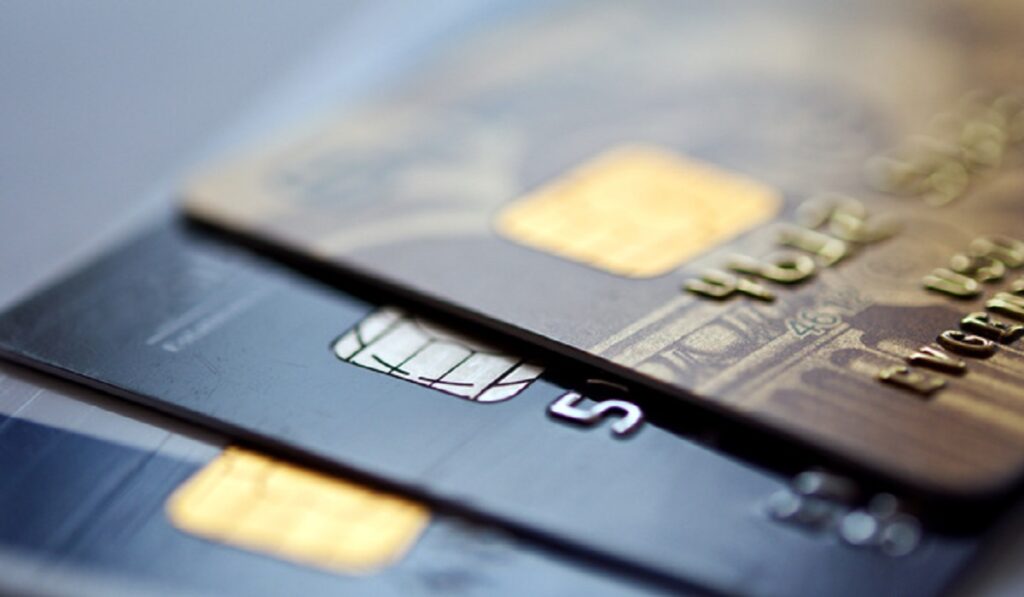The Best Credit Cards: A Guide to Choosing the Right Card

In today’s world, credit cards are an indispensable financial tool. Credit cards are popular because they offer convenience, security and rewards. With so many credit cards available, it can be difficult to choose the one that best suits your needs. This article will help you choose the right credit card to suit your financial needs and give an overview of the most popular credit cards on the market.
Understanding Your Needs
Assess your financial needs and habits before you decide to use a credit card. You should ask yourself these questions:
- Decide on the main purpose of the card. You may be looking for a credit card to make everyday purchases, for travel or for building a credit history.
- Spending habits: Analyze where you spend most to determine your spending habits. Some credit cards reward you more for specific categories of spending, such as travel, dining or groceries.
- Check your credit rating as it is a key factor in determining whether you qualify for a credit card. Credit scores are important. Those with high credit scores can qualify for premium cards that offer attractive benefits.
- Know the fees and interest rates: Make sure you are aware of the annual fees, transaction charges, and interest rate associated with your card. In general, low-interest rates with no annual fees and low-interest rates are preferred.
Types of credit cards
Various types of credit cards are available to suit different needs.
1. Benefit Credit Cards: These cards reward you with points, miles or cashback for eligible purchases. These cards are best for people who pay off their monthly balances to maximize their rewards.
2. Travel credit cards: These cards are ideal for frequent travelers. They often offer travel benefits, including airline miles, hotel discounts and access to airport lounges.
3. Cashback Credit Card: These cards give a percentage cash back for eligible purchases. They are a simple way to earn rewards.
4. Balance Transfer Cards: These cards are designed to consolidate your debt. They allow you to move high-interest credit card balances onto a new, lower interest rate or even a zero percent introductory rate.
5. Student credit cards: These cards are designed for students and young adults and can help them build their credit history. They may also have lower credit requirements.
The Best Credit Cards on the Market
- Chase Sapphire Preferred Card: Popular travel rewards card that offers generous sign-up bonuses and valuable points on travel and dining.
- Citi(r) Dual Cash Card: This card offers a competitive cashback program that allows users to earn double cashback on each purchase.
- Discover it(r), Cash Back: This card has rotating categories of cashback and is a great choice for anyone who likes to track rewards.
- Capital One Venture Rewards Credit Card: Flexible redemption options for travelers with the Capital One Venture Rewards credit card.
- Bank of America Cash Rewards Credit card: Users can choose the cashback category they prefer, so it is flexible for different spending habits.
- American Express Gold Card: Premium card that offers exceptional rewards for dining and grocery shopping, as well as airline fee credits and other travel benefits.
- Wells Fargo Propel American Express Card: No annual fee travel card that offers bonus points for a variety of categories.
When choosing the best credit card, you should carefully consider your financial situation, spending habits and credit score. You can make an educated decision by comparing the rewards and features of different credit cards. To avoid surprises, make sure you read all the fine print. This includes fees and interest rates. You can maximize the benefits of your credit card by paying it off in full every month, whether you choose a travel or cashback card. To ensure your financial success, you should always be on the lookout for ways to manage your credit card.

What is the minimum credit score?
The credit scores that are required by different cards may vary depending on the issuer of the card and its features. Credit card companies generally use credit scores to determine whether an applicant is creditworthy and eligible for a specific card. FICO Score is the most common credit score model, and it ranges between 300 and 850. Here are some guidelines on the typical credit scores required for various types of credit cards.
- Credit Scores between 750 and 850 are considered to be excellent. People with excellent credit will likely qualify for the highest-end credit cards, which offer low interest rates and no annual fee. These cards can offer exclusive travel benefits, cashback, and other attractive features.
- Good Credit: Scores between 670 and 749 are considered to be good. Good credit holders can qualify for many credit cards. However, the rewards and benefits may not be as good as those available to people with excellent credit. Individuals with good credit can choose from a wide range of standard credit cards that offer rewards and cashback.
- Fair Credit: Scores between 580 and 669 are considered to be fair. Fair credit holders may be limited in their options, and they might qualify for credit cards that have higher interest rates or lower credit limits. People with fair credit are often eligible for secured credit cards that require a refundable deposit as collateral.
- Poor Credit: A credit score below 580 is considered to be poor. Poor credit scores may make it difficult for people to qualify for credit cards. They might also need to look at credit-building alternatives like secured credit cards or credit-builder loan.
Credit card issuers can have their own underwriting criteria and credit score requirements. In addition to credit scores, other factors like income, debt-toincome ratio and credit history can also be considered in the approval process. Some credit card companies also offer prequalification tools, which allow applicants to see if they will be approved or not without affecting their credit score.
It’s important to read the terms and conditions of the credit card you’re applying for, including any credit score requirements. This will help you determine if it matches your credit rating. It is important to use credit cards responsibly, no matter what your credit score. This will help you maintain a good credit rating and improve it over time.
Can You Get a Credit Card Even With Bad Credit Scores?
It is possible to get a credit card despite having bad credit. However, the terms and options offered may not be as good as for those with better credit scores. Bad credit is a credit rating that shows a pattern or late payments, defaults or high credit usage, making you a greater risk for lenders. Some credit card companies offer special products for people with a limited or poor credit history.
There are several credit cards available to people with poor credit.
Secured Credit Card: Secured credit card are popular for people with bad credit. As collateral, they require a refundable deposit that serves as protection for the issuer of the card in the event the cardholder defaults. Credit limits are usually equal to the amount of deposit. Secured cards help to rebuild credit when they are used responsibly. Some issuers will convert them into unsecured cards if you use them for a certain period.
Subprime credit cards: Certain credit card companies offer “bad credit” or subprime credit cards, which are specifically aimed at people with low credit scores. These cards can have higher interest rates and annual fees as well as lower credit limits. They can be useful for rebuilding your credit. However, you should read the terms and conditions carefully to avoid any hidden fees.
Retail Store Credit Card: Many retail stores offer credit card that is easier to qualify for even if you have bad credit. These cards are only valid at a specific retailer or store and often have lower credit limits. Store cards may come with high interest rates and the ability to carry a balance can lead to further debt.
Credit Builder Loans – Although not a credit card or a line of credit, credit builder loans are able to help you improve your credit rating. These loans are deposited into an account and fixed monthly payments are made. You receive the money once the loan has been paid. The lender will report your timely payments to credit bureaus to help boost your credit score.
Avoid excessive credit inquiries when applying for a credit card with bad credit. Multiple hard inquiries in a short time can damage your credit rating. Focus on choosing the card that best suits your needs, and then using it responsibly. You can improve your credit rating by making timely payments, maintaining low balances, and managing your credit responsibly.






